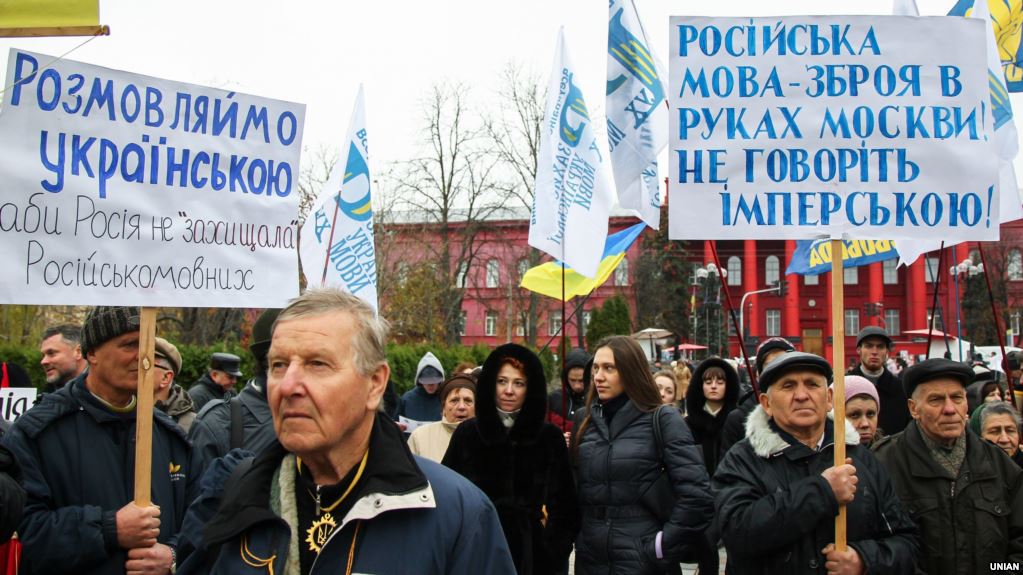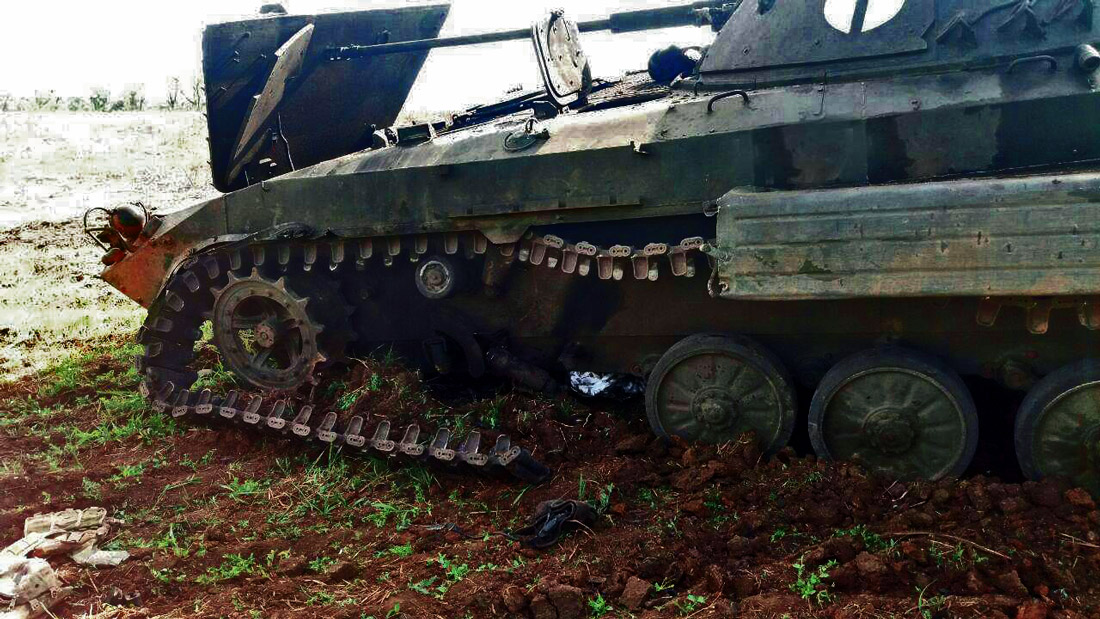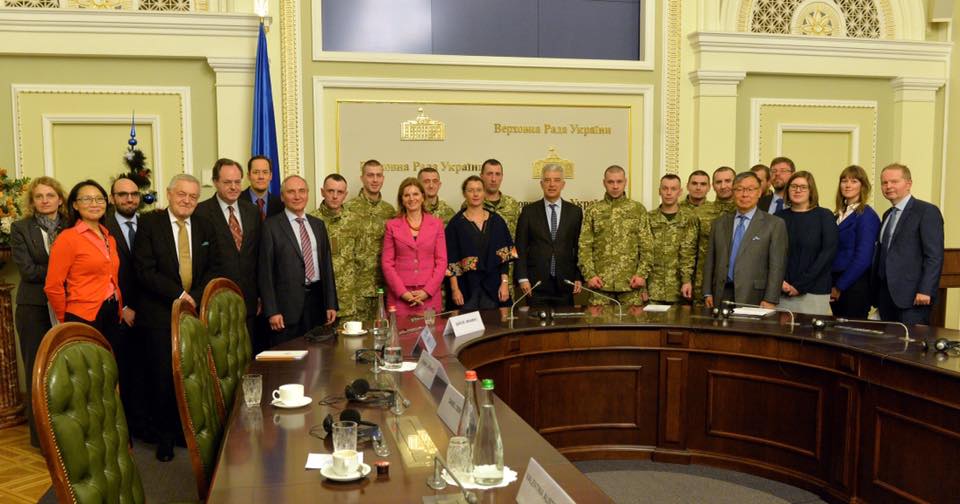Teachers of Ukrainian language and literature who have remained in “DNR” controlled territories have been ordered to re-qualify their knowledge in Russian language and literature. They may refuse, but will have to find a new job. Therefore, as stated by Viktoriya, a Ukrainian language teacher from Donetsk (name changed for security reasons - Ed.), teachers who want to continue working in their schools have no choice but to attend these courses.
“In the former Institute of Postgraduate Education (it has a different name now - Republican Institute or something like that), former Ukrainian language teachers must attend re-training sessions. They are awarded diplomas with a “DNR” stamp, giving them the right to teach Russian. For example, there are six hours of Russian in the seventh grade and half an hour of Ukrainian, so most teachers are forced to attend these courses if they don’t want to lose their jobs.”
According to Viktoriya, there have been many ideological conflicts during these courses.
“We’ve had quite a few ideological conflicts with teachers from the Department of Russian Language and Literature. They say that there’s no such country as Ukraine, while Ukrainian literature and folklore is something second-rate.”
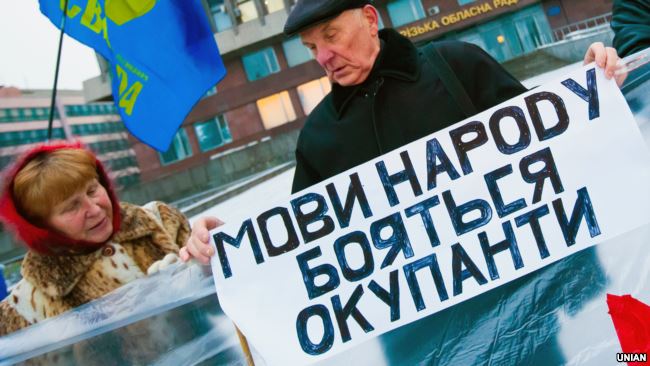
According to the so-called “DNR ministry of education”, the first group of 120 people has already started the re-qualification course, and two more groups are planned. Previously, the so-called “DNR minister of education” Larysa Polyakova stated that the Ukrainian language had been removed from all exams on the occupied territories.
It is worth noting that “DNR authorities” have declared that there are two “official languages”: Russian and Ukrainian. In fact, the Ukrainian language is gradually disappearing in all spheres of community life.
Yevhen Dyky, expert at the International Institute of Democracy, believes that what is happening is a continuation of Russia’s imperial policy that has prevailed for centuries.
“This is a continuation of the persecution of the Ukrainian language that goes back to the Valuev Circular*, the Ems Decree**, and Stalin’s Russification Policy. I clearly remember my childhood when Volodymyr Shcherbytsky, leader of the Communist Party of Ukraine from 1972 to 1989, initiated a wave of Russification in our country. To begin with, the “LNR-DNR” do not exist. This must be clearly understood. Everything that’s happening in these territories has been instigated directly by the Kremlin. We’re talking about Russia’s policy in the occupied territories. Before the New Year, a Kremlin spokesman talked about the Kremlin’s plans to split Ukraine into two entities: Ukraine and NovoRossiya. Of course, the Kremlin will never admit this officially. So, the Ukrainian language must be banned in this so-called NovoRossiya.”
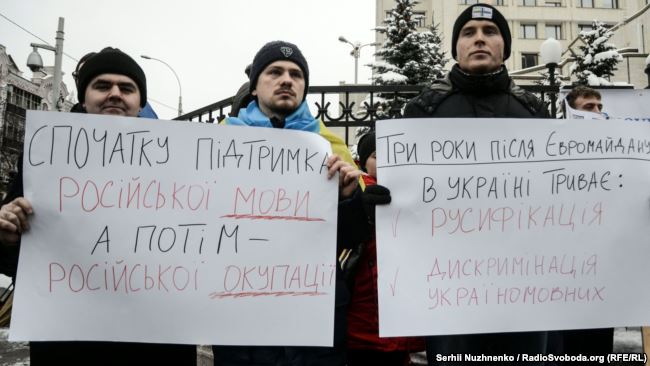
Yevhen Dyky also asserts that language self-identification is necessary as it allows Ukraine to stand out as a separate state, and Ukrainians as a distinct nation.
“It’s quite obvious what consequences Russia wants to reach. But, we should all clearly understand that if the Ukrainian language exists, there is a chance for us to re-build our country as a nation in all other respects. If we leave the name “Ukraine” and allow the Russian language to circulate in official spheres, we’re just “some kind of slightly different Russians” (немножко другие русские). Russians are still willing to tolerate us as “slightly different Russians”, but the existence of a separate Ukrainian nation does not fit the Russian imperial model.”
Assessing the prospects and implications of such a policy in occupied Donbas, Yevhen Dyky believes that ORDLO (areas of the Ukrainian Donbas under Russian control) will be liberated before the consequences of these policies become critical.
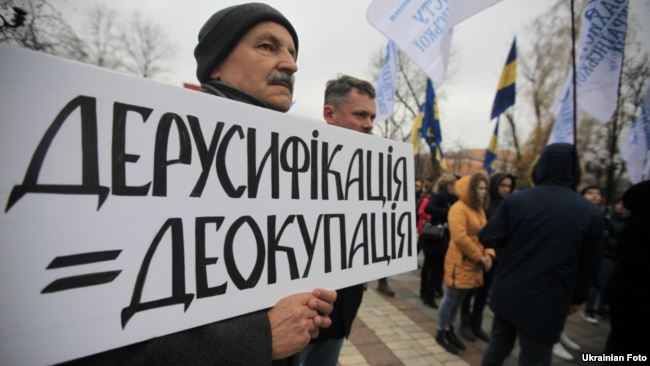
The founder of the Committee for Protection of Ukrainian Ivan Lozovy thinks that these “DNR” language policies once again demonstrate the importance of the language issue in Ukraine.
“Look at what the enemy is doing. They ban Ukrainian in areas where this language has hardly survivied. Why? To strengthen their position. This is completely logical from Russia’s point of view. The second point is that in this case Ukraine should learn from what’s happening in this occupied administration…. Perhaps in another way, but we definitely need to “ukrainianize” Ukraine.”
* Secret decree approved by the Minister of Internal Affairs of the Russian Empire Piotr Valuev on July 18, 1863, by which a large portion of publications in Ukrainian (religious, and literature used for schools) was forbidden.
** Secret decree issued by Tsar Alexander II of Russia in 1876, banning the Ukrainian language in print, with the exception of reprinting of old documents. It also forbade the import of Ukrainian publications and the staging of plays or lectures in Ukrainian. It was named after the city of Bad Ems, Germany, where it was promulgated.

